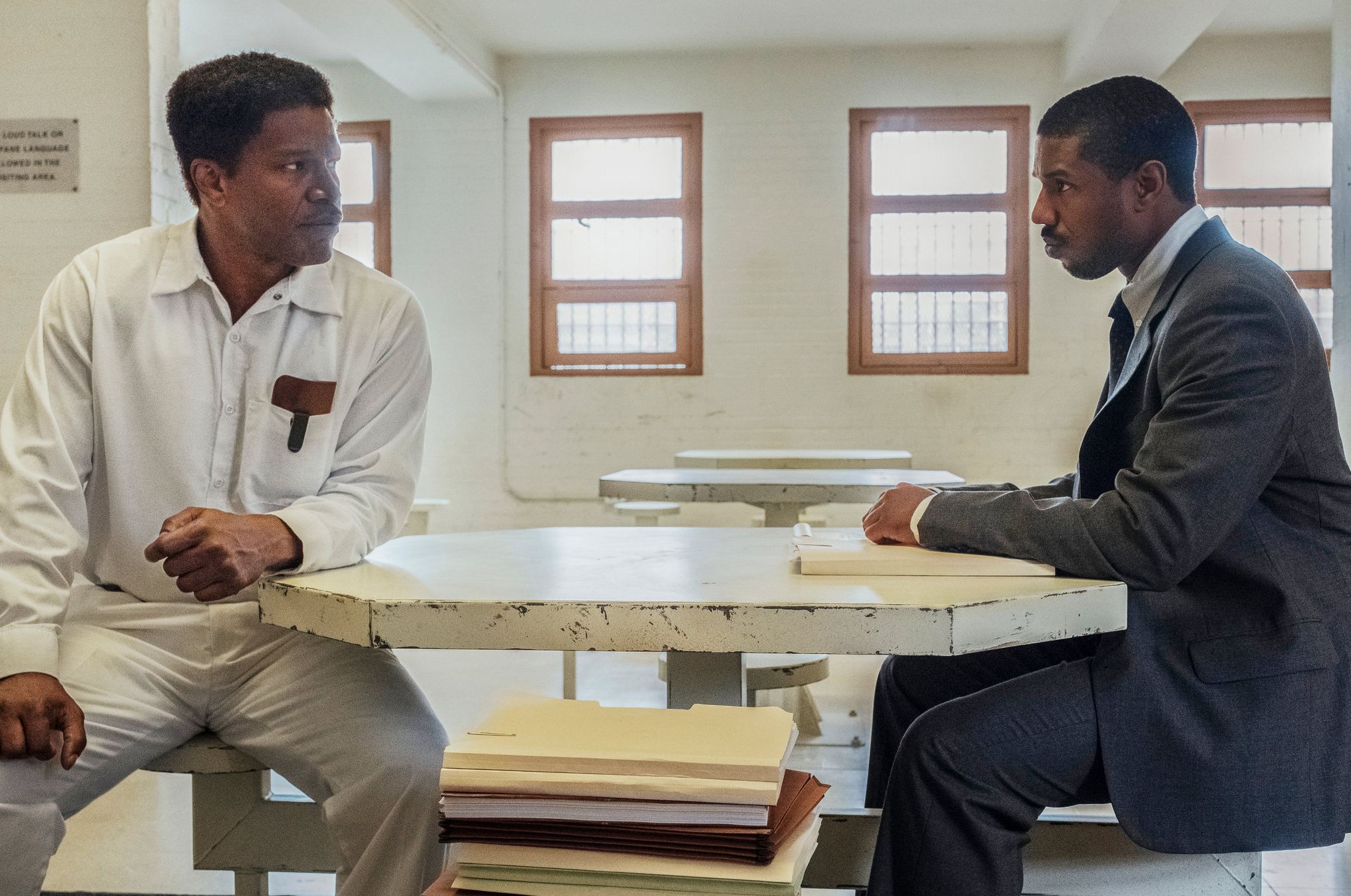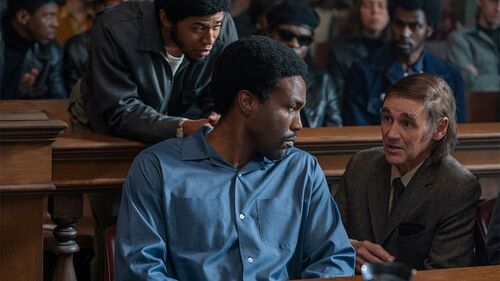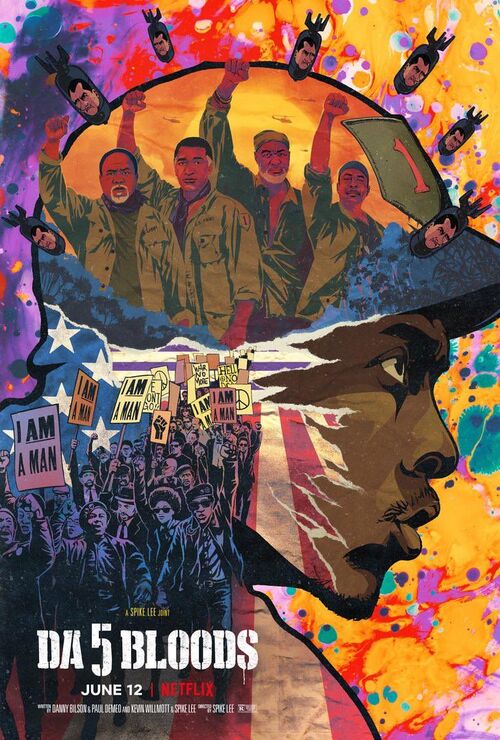
'Just Mercy' review
 Based on a true story, ‘Just Mercy’ is at its most effective when it highlights the disconcerting ways the bar of justice and decency for black people is lowered to upsettingly low levels. It tells the story of Harvard law graduate Bryan Stevenson’s (Michael B. Jordan) idealist charge towards righting some wrongs on the death rows in 1980s Alabama prisons.
Based on a true story, ‘Just Mercy’ is at its most effective when it highlights the disconcerting ways the bar of justice and decency for black people is lowered to upsettingly low levels. It tells the story of Harvard law graduate Bryan Stevenson’s (Michael B. Jordan) idealist charge towards righting some wrongs on the death rows in 1980s Alabama prisons.
Probably the film’s most affecting moment when Bryan meets a black prisoner and delivers a simple message to him. Bryan tells the prisoner he won’t be facing execution within the next 12 months. “That’s the best news I’ve heard in a long time” the prisoner replies as he holds back the tears. Bryan looks on with a hint of bewilderment as we get a sense of how scarce and precious a commodity hope is.
Hope is also very fraught here, a byproduct of the oppression in a racist penal system and society. The first of many victims of a broken America we meet is Walter “Johnny D” McMillan (Jamie Foxx), who is picked up by police one night on his way from his work for a murder he didn’t commit. Director Destin Daniel Cretton films this encounter with minimal fuss as the groundwork is laid for not only Foxx’s understated but stellar performance but also the sense of urgency that accompanies such stories.
By the time Bryan catches up with him a few years down the line, Johnny D is facing death by the electric chair after being wrongly convicted of the murder of a white woman. He is also wallowing in cynicism after being failed by a few other lawyers. This cynicism puts a dent in Bryan’s confidence. Indeed, audiences may be tempted to surrender to Johnny D’s exhaustion and resignation to the corrupt system as he delivers a distressing manifesto of the disenfranchised.
All this happens in the first 20 or so minutes and by the time Johnny D walks away from his first meeting with Bryan, ‘Just Mercy’ feels like an almost perfect short film that weighs heavy on one's emotions. What follows is a brisk walk towards a resolution we have some idea of. Hope will blossom into justice and all will feel well, if only just for a few minutes. We’ll then get the archive pictures outlining the great work the real-life Bryan Stevenson has done (135 death row inmates’ lives took a turn for the better after meeting him).
But it’s the different faces of hope I would have loved to have seen Cretton prod at more surgically. It’s the one thing you feel our young hero doesn’t fully understand. He gets its value but takes for granted that others with law degrees have wielded it and perhaps abused it when sitting across inmates on death row. It is this level of nuance that ‘Just Mercy’ lacks as Cretton plays the safe hand and rides on audiences' own idealism. It doesn’t help that we are reminded a few times, admittedly purposefully, that is the town (Monroeville) Harper Lee wrote ‘To Kill a Mockingbird’ in.
We also get the cliché’s that accompany such films; the intimidation of the man fighting system, the scene where a fake bomb threat sparks some panic from our heroes and the righteous courtroom speech. It is perhaps instructive that all these happen when we are away from the prisoners on death row, their sense of community and the small horrors they have to endure with a noose permanently around their necks.
For most of the final two acts, 'Just Mercy' is concerned with unraveling the racist twine wound tightly around Johnny D’s conviction. Bryan supported by Brie Larson’s, Eva Ansley, who’s worked with the real-life Mr. Stevenson for the past three decades.
Through it all, there is a strong dynamic between Jordan and Foxx to hold on to. After the rough first meeting, their encounters assume much more warmth and empathy. There are layers to Jordan too, who does well to embody the purpose of the man who founded the Equal Justice Initiative.
There was a sequence early on I was surprised was taken straight from Bryan Stevenson’s memoir; where he is denied access to clients at a prison unless he submits to a strip search. The range of emotions Jordan goes through – defiance, anger, but also fear and humiliation, are impressive. It got me boiling and I wanted to stay angry. Cretton thought otherwise and the film is tamer for this.


